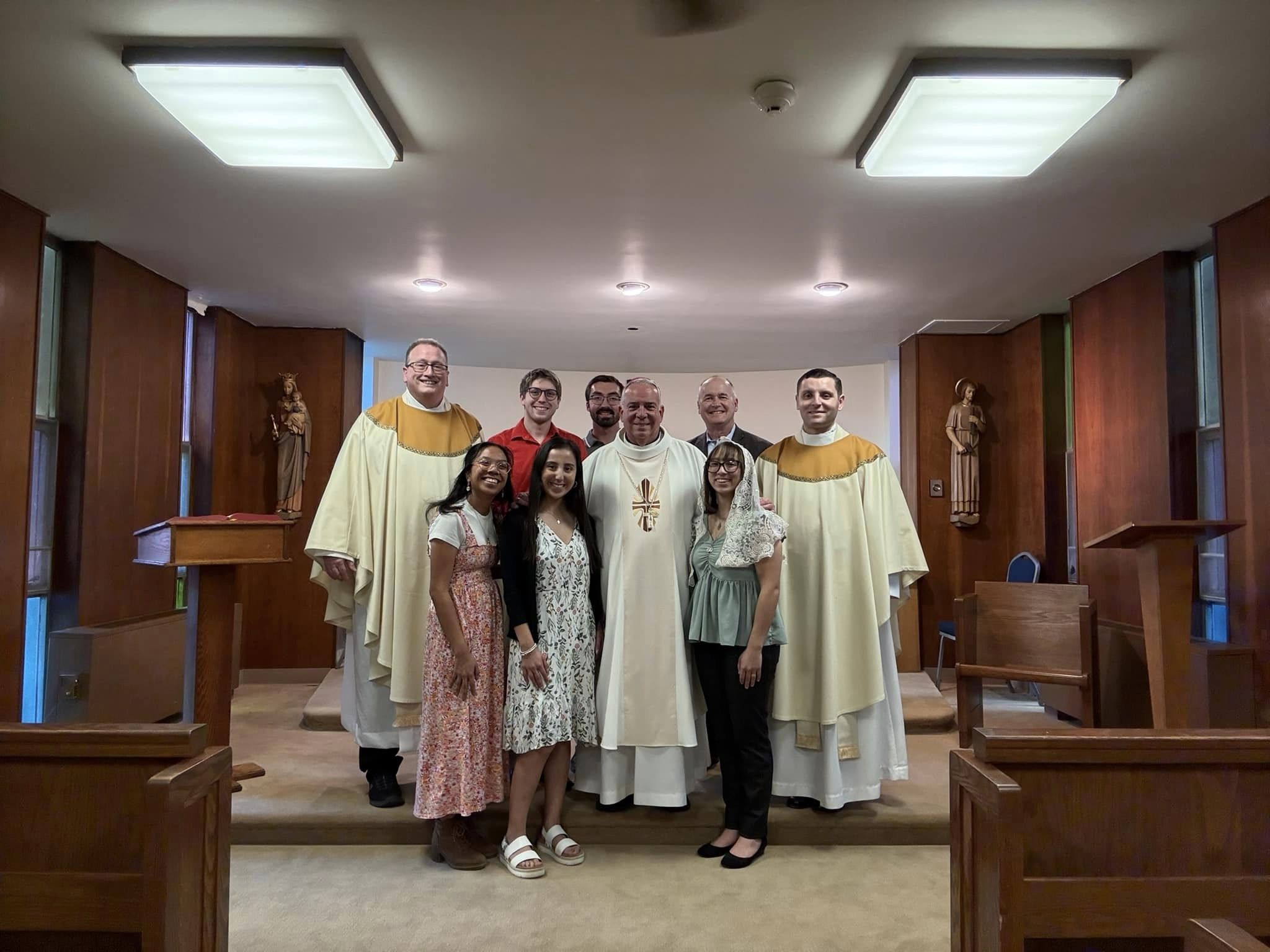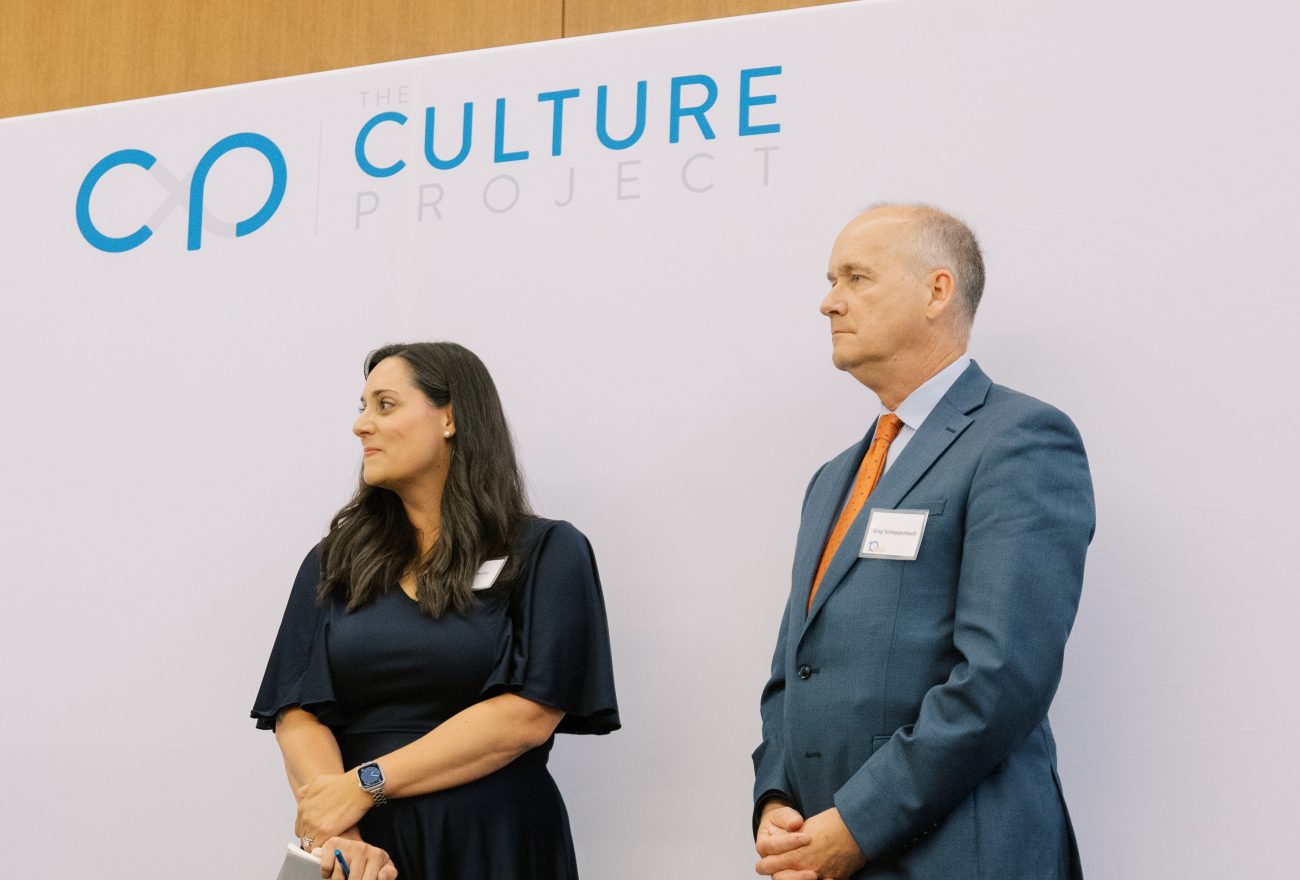Since its inception a decade ago in Philadelphia, the Culture Project International announced its first transition in leadership last September.
A founder of the organization and Philadelphia-area native Cristina Barba Whalen has stepped away from her role as chief executive officer, and Greg Schleppenbach, executive director since 2022, is the new CEO.
From its 2014 inception, the Culture Project has worked to restore virtue to today’s American culture by promoting human dignity and sexual integrity. The approach is inspired by Pope St. John Paul II’s Theology of the Body, a collection of lectures given by the pope during his Wednesday audiences between 1979-1984.
The Culture Project trains teams of recent college graduates to serve as peer-to-peer missionaries who take on year-long assignments to introduce the concepts of dignity and integrity primarily to middle school and high school students in dioceses throughout the country.
Looking back on the past decade, Whalen – a graduate of Archbishop John Carroll High School in Radnor – recalls the founding of the Culture Project as “a labor of love and friendship based on mission (to) create a shift in the culture.”
Whalen says she received great support for the Culture Project early on from Archbishop Charles Chaput, then Archbishop of Philadelphia, who provided encouragement and archdiocesan office space. She also noted
Archbishop Nelson Pérez, who brought the Culture Project missionaries first to the Diocese of Cleveland where he was bishop at the time, and later to the Archdiocese of Philadelphia after he became its shepherd in 2020.
Still headquartered and serving in Philadelphia, the Culture Project’s missionaries are also working in the Diocese of Toledo, Ohio; the Archdiocese of Omaha; and as of this fall, the Archdiocese of Kansas City, Kansas.

Archbishop Pérez and Greg Schleppenbach with members of the new missionary class for 2024-2025 who will serve in the Archdiocese of Philadelphia along with Father Stephen DeLacy (left), Vicar for the archdiocesan Office of Faith Formation of Youth and Young Adults, and Father August Taglianetti (right), who serves as chaplain to the missionaries. (Photo: Archbishop Pérez)
Before joining the Culture Project two years ago, Schleppenbach worked in the pro-life field for more than 30 years. He worked “fighting the abortion industry,” what he calls “the supply-side of abortion.” Now he’s working to impact “the demand side” by reaching young people earlier in their lives, and by expanding the reach of the Catholic culture initiative.
Growing up in Nebraska, he was “born and raised Catholic in the Archdiocese of Omaha,” and says that his faith “grew leaps and bounds in college” at the University of Nebraska-Lincoln. He spent much time at the university’s Newman Center, and “got to know a lot of solid, faithful, active Catholics” which solidified his own faith, he said.
The youngest of 11 children, he was introduced to the pro-life movement by his mother, Agnes. When Schleppenbach was only 9 years old, she started an early pro-life chapter in the family’s home in 1973 after the Supreme Court handed down the landmark Roe v. Wade decision, which protected a woman’s right to abortion.
“I grew up with pro-life, right-to-life meetings in our home, and my mom’s involvement inspired me,” he said.
While at the University of Nebraska-Lincoln, Schleppenbach got involved in Students for Life, and eventually became president of the group. After graduating in 1986 with a bachelor’s degree in business administration, he joined Lincoln Right to Life.
His pro-life involvement soon led to a career with roles including associate director of the Secretariat of Pro-Life Activities for the U.S. Conference of Catholic Bishops (USCCB) and executive director of the Nebraska Catholic Conference.
On coming into his new role as CEO of the Culture Project, Schleppenbach is excited about “this mission and our efforts to scale up,” he said, “to reach more dioceses, more hearts and minds, so that we can make faster and more progress in changing the trajectory of our culture.”
A top priority is “to scale up our recruiting efforts,” he said.
He looks to increase the number of missionaries from 25 to 40 by next fall, which would allow them to move into two or three more dioceses. This will be accomplished both by recruiting new missionaries as well as retaining some current missionaries for second and third years.
With this transition Whalen plans to spend more time with her young family, which includes two children, ages 3-1/2 and 1-1/2, though she’ll still be involved with the Culture Project, where she retains her role as president of the Board of Directors. She’ll also be an advisor to the new CEO.
Whalen said Schleppenbach “is such a capable leader (and) the right hands to take (the Culture Project) to that next level.”
PREVIOUS: Bernardine Sisters Celebrate 130 Years of Prayerful Mission Service
NEXT: ‘Vibrant’ St. Martin of Tours Parish Thrives as its Second Century Begins with Feast Day Mass



Share this story